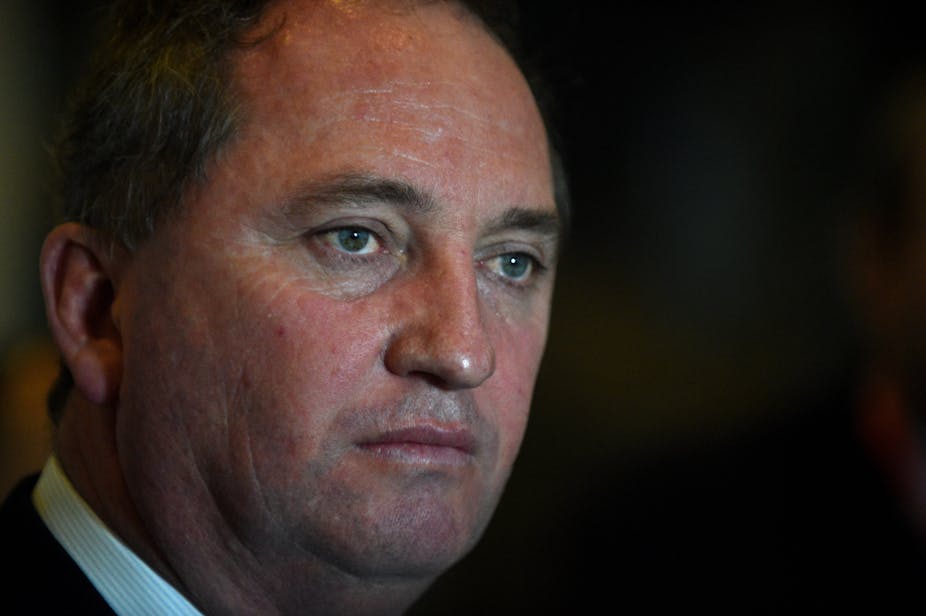When Leader of the House Christopher Pyne told the Black Hand dinner – a get-together of moderates at the recent Liberal federal council – that a bill for same-sex marriage would go forward to parliament in the second half of this year, people present cheered.
A little over a week later, the moderates might be wondering whether, in their optimism that they were making progress on same-sex marriage, they had got ahead of themselves, or indeed had been naive. There will be a cross-party private member’s bill, but so far Tony Abbott is looking to bury it rather than have it brought to a vote.
Meanwhile, Pyne is believed to have told people he was referring to Bill Shorten’s bill – which the government has condemned – and any other construction is wrong.
The battle over same-sex marriage is taking on a strange nature.
Those Liberals on the yes side have largely been quiet, with a few exceptions. Pyne, thought by moderates to be a supporter, rejected the idea that ministerial backers of same-sex marriage should resign; backbencher Ewen Jones spoke out, and Abbott’s sister Christine Forster, a Sydney City councillor, has been campaigning widely.
Then there is this invoking by the no side of how a change in our marriage law would be regarded in Asia.
It started with Senate leader Eric Abetz saying Labor and journalists “tell us time and time again that we are living in the Asian century – tell me how many Asian countries have redefined marriage?”
Inevitably, when Agriculture Minister Barnaby Joyce was out spruiking his white paper on Sunday he was asked about Abetz’s comment – and actually went further.
“I think that what we have to understand is that when we go there, there are judgements, whether you like it or not, that are made about us, and they see in how we negotiate with them whether they see us as – whether they see us as decadent,” Joyce said.
Asked “so they’d see us embracing gay marriage as decadence?”
Joyce replied, “I think that in some instances, they would”.
Joyce’s argument is improbable and even if it were not, it would be irrelevant.
An obvious riposte is to note that Australia doesn’t worry too much about what an Asian country might think when it suits it to pursue a policy that nation mightn’t like – notably the boat turnbacks policy.
A second point is that some Asian countries have polygamy – for example, Indonesia, Malaysia and Singapore. This is unacceptable in Australia but does not affect our relations with these countries.
A third counter is to ask if we would be apply the yardstick of “what will Asian countries think?” to other social areas – the divorce law, for example?
The arguments about likely Asian reaction are bizarre. Are Asian countries going to have a different attitude to the United States now its Supreme Court has upheld gay marriage?
Opponents are driven to take this “Asia” path presumably because the countries they would normally compare Australia with – the United Kingdom, America, New Zealand – have embraced gay marriage.
Some Liberals in the yes camp believe a surge of support for same-sex marriage will show up over the next few weeks in Coalition MPs’ electoral offices. But the grassroots “no” campaign is likely to be as highly organised to bring pressure on the MPs, and we can see its “scare” will be formidable.
It is notable that the two Liberals among sponsors of the bill, Warren Entsch and Teresa Gambaro, have so far been unwilling to throw themselves into the fray. Entsch argues it would be counter-productive to talk before parliament sits; Gambaro faces a preselection challenge (driven by other factors rather than this issue). But they need to break cover to advocate their own bill.
And where, one might ask, is Malcolm Turnbull, who has previously been the most articulate Liberal advocate of same-sex marriage and a conscience vote for his party?
Update – Monday, July 6:
Forster launches broadside at Abetz
Christine Forster, Tony Abbott’s gay sister, has hit out at government Senate leader Eric Abetz, accusing him of inconsistency in his swingeing attack on same-sex marriage last week.
In an opinion piece for The Australian, Forster writes that Abetz asserted that decisions on same-sex marriage should not be made by unelected judges but by the people. He was referring to the US Supreme Court ruling upholding same-sex marriage.
“Senator Abetz’s opinion of the role of the judiciary, if not his opposition to same-sex marriage, has apparently changed since December 2013, when he tweeted that the Australian ‘High Court’s overruling of ACT same-sex marriage laws is welcome’,” Forster writes.
Forster also defends the media’s coverage of the issue against Abetz’s claims they were losing objectivity, “obsessed by a slim majority activist US Supreme Court decision”, and overlooked anti-same-sex marriage developments in some countries.
Forster says Australian media coverage of the successful Irish referendum and the US decision “was justifiable reporting of what were significant news events in those countries which related directly to discussion under way in Australia. Their newsworthiness was given added weight by the fact that a cross-party bill is close to being introduced to the Australian parliament”.
The Australian people are now waiting, increasingly impatiently, for their parliamentarians to make a decision on the gay marriage issue, Forster writes. “But before that can happen, the federal Liberals need to retire behind closed doors and have the debate that the prime minister himself has promised” on a conscience vote.

